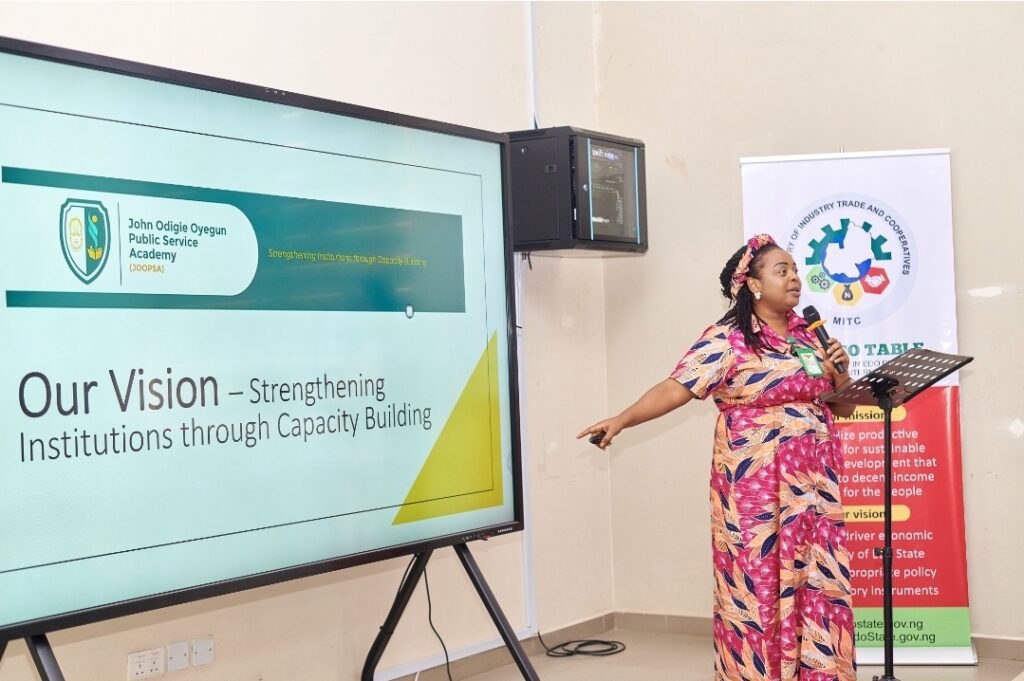The COVID-19 pandemic heralded a time of great change and turbulence with far-reaching consequences for everyone, everywhere.
In a matter of months, the idea of how work was done rapidly changed. Businesses and governments were faced with the same choices – to adapt or die. The pandemic also demonstrated just how far many government agencies still must go to become truly digital-first organizations.
Government workers had to adapt quickly as ‘mute your mic’ became more popular than ‘standing on all existing protocols.’ The pandemic also saw a transition to tele-health and novel virtual learning services.
Fortunately, training does not have to happen as a reaction to crises. For stakeholders in the public service system what is urgently required is the introduction of flexible policies that equip both the workers and infrastructure with the capacity to respond to technological changes in real-time. Digitizing training implies using technology to improve and enrich the learning experience.
In Nigeria, the effects of the digital revolution can already be seen in the digitalization of services such as passport application under Immigration Services, advanced payment protocol of public utility service through the Remita system, and, more recently, the digital application for the Permanent Voter Card from INEC. Laudable though they are, these improvements should be seen as necessary steps in our nascent journey towards the complete digitization of other parts of the Nigerian Public Service system.
Our vision for digitizing public service utility needs to be broad enough, our planning needs to be detailed, and our commitment to demanding change from the status quo needs to be unwavering. Why, for example, do we duplicate and re-duplicate public data collection? Immigration, transportation, banking, security, and crime protection services can all share one data bank since they all process the same data pool. This policy alone could significantly reduce the cost of national data management and improve services rendered to Nigerians who desperately need them.
There is no element of this vision that does not require a practical transfer from analog thinking to digital cognition. This transfer and paradigm shift can be actualized through effective training. Digitalized training toolkits that apply to context needs and solutions are necessary, as technological trends shift in ever more gratifying ways on the frontier of what can be conveniently termed ‘new work’. New work is just technological evolution being applied to solve problems in real time.
Critical action is required at all levels of government. At the Federal level, the commitment to development goals and investment in new technology must be backed by budgeting responsibility. New development goals and policies derived there from, that require flexibility need to be the least common denominator in investment spending. Policy and planning must be that good for these changes to be codified and sustainable.
At the State level, strategic planning must incorporate technology-enabled public service institutions that are backed by laws that value efficiency over anything else. Training and learning curriculums should be developed in partnership with locally and globally renowned citadels of technology intelligence and management.
Bearing in mind that whereas some tech-driven solutions are prepared globally, local problems do arise within the ecosystem that require context-specific adjustments. For example, we do not have tech hardware that keys in vernacular language elements for processing. Countries like Japan and Saudi Arabia have shown us that good things can come from making this an essential element of instruction development.
At the local government level, training must go hard in the direction of re-inventing literacy. The new literate at the workplace must acquire basic computing skills that ensure further versatility in exploring the emerging digital frontier of new work.
That’s why our work in Edo State is supremely exciting. We are building a technology-enabled public service academy to up skill and retool our workers. Through a robust Learning Management System (LMS), learners would be able to access our courses from any part of the world. The private sector will also be able to benefit by accessing public service courses to help improve Government relations at all levels. The thinking is, if we do this right, we would be changing not just the Public Service mindset but also, how Government interacts with stakeholders across the board, allowing the engine of Government to connect with the public in ways that are meaningful and sustainable. Evidence shows that learning can bridge gaps not only in the perception of the public service but also, positively influence workers’ behaviour.
Digitizing training across the public service ecosystem is both challenging and exciting. What we know for sure is that nothing is certain and the possibilities with technology are legion. The links between capacity building and institutional strengthening exist. What remains unexplored is how to leverage technology to achieve these linkages in Nigeria and by extension Africa.
Ms. Precious Imuwahen Ajoonu is the Managing Director, John Odigie Oyegun Public Service Academy (JOOPSA), the foremost public service training institute in Africa, which is located at the very heartbeat of Nigeria, Edo State



